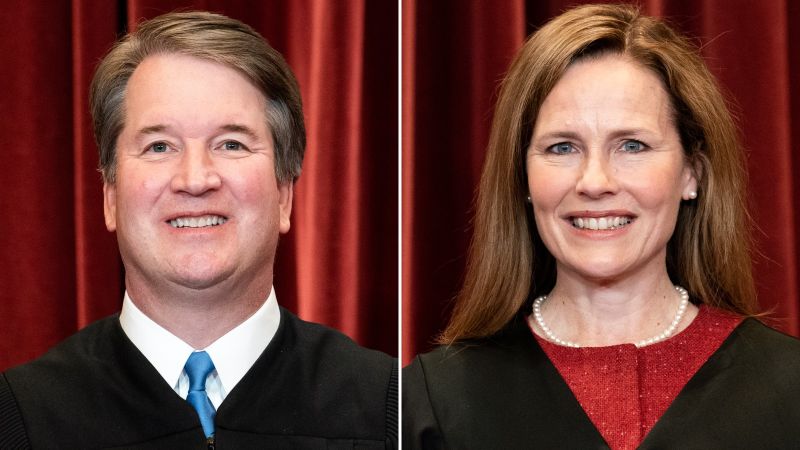Justices Brett Kavanaugh and Amy Coney Barrett, who often align on cases involving abortion and reproductive rights, expressed concern during oral arguments over the FDA regulation of the abortion pill mifepristone. They questioned whether any doctors had been forced to participate in an abortion against their conscience. Kavanaugh and Barrett’s inquiries seemed to focus on the protection of doctors with religious or moral objections to abortion, suggesting that the conservative Christian group challenging the FDA’s oversight had failed to prove harm and lacked standing to bring the case forward. This could potentially lead to the FDA’s rules for access to abortion drugs remaining intact, as the final ruling is expected by the end of June.
The case in question involved the FDA’s regulation of mifepristone, the first drug in a two-drug regimen used to terminate a fetus in the early weeks of pregnancy. Following the Supreme Court’s 2022 reversal of Roe v. Wade, more states have imposed restrictions on abortion, leading to an increase in the use of medication abortions like mifepristone. The case also raises broader questions about the FDA’s authority to evaluate the safety and efficacy of various drugs, not just those related to pregnancy but also for conditions like epilepsy, diabetes, and cancer.
The anti-abortion doctors in the Alliance for Hippocratic Medicine argue that their conscience rights could be violated if they were required to care for patients experiencing complications from medication abortions, even though they do not prescribe mifepristone. Despite winning at lower courts with conservative judges, the challengers faced skepticism from the Supreme Court justices. Only Clarence Thomas and Samuel Alito showed strong support for the challengers’ arguments, suggesting that the case might not succeed in challenging the FDA’s regulations on mifepristone.
During the oral arguments, the focus was on whether doctors could refuse to participate in abortions on conscience grounds, with the government arguing that federal and state laws already protect such rights. Justices Barrett, Kavanaugh, Kagan, and Jackson all raised concerns about the mismatch between the claimed injury by the challengers and the remedy they sought. The liberal justices seemed to support the government’s position that the challengers had not identified any specific instances of doctors being forced to participate in abortion procedures, questioning the standing of the case based on this issue.
The case also delved into the broader issue of the FDA’s review process for mifepristone and its availability for medication abortions up to 10 weeks of pregnancy. The FDA has gradually relaxed restrictions on mifepristone since its approval in 2000, but opponents argue that these changes have increased the risk of complications requiring emergency room care. The outcome of the case will not only impact access to mifepristone but also have implications for the FDA’s regulation of other drugs and the balance between medical conscience rights and patient access to reproductive healthcare.


